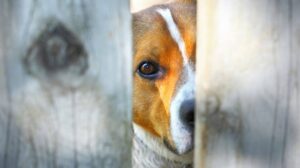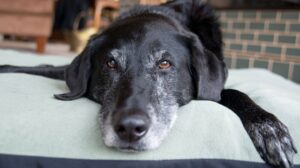
Housebreaking Your Dog: Tips to Prevent Accidents
Housebreaking your pup can be an uphill struggle for any owner, but with some understanding, patience and some key tips it can be accomplished successfully.
Practical education of your puppy begins from birth. Your little darling must learn where and when he should do his daily business from day one. To maximize learning capacity and reduce errors during imprinting phase (up until week 20 of life) housetraining should begin as soon as possible – when errors can more easily be undone than at other times during training.
Here’s how you can housebreak your pup: Tips and tricks.
Kittens learn from their mothers how to use the litter box, while dog puppies must learn from their humans that it’s not acceptable for them to relieve themselves indoors but outside. Be patient with your pup at first – it will take some time before he understands what you want him to do. Praise and reward him when something right rather than punish him when something goes wrong; this process is called positive reinforcement, and takes patience, consistency, and attention toward your four-legged friend for best results; instead you may risk upsetting or scaring off which could result in behavioral issues like uncleanliness or even aggression from his four-legged friend!
Take him outside as soon as you wake up, feed, or playtime is over – this way you will quickly recognize when they need to go outside through his behavior: turning conspicuously in circles while sniffing the ground with their nose will tell you their time has come to go outside! Use these general guidelines as guides when taking care of canine children:
* Puppies under three months should visit the bathroom about every two hours; those three to four months old need to go outside every three hours, and for five to six month-old puppies every four hours is generally sufficient for proper bathroom breaks.
Tip: At first, it may be beneficial to carry your little guy outside when his bladder is full. With time, however, let him walk behind you to help memorize the route on his own and praise lavishly once outside if necessary; once outside reward him with treats as necessary and praise lavishly afterwards if need be – eventually your little buddy will learn what you expect of him by being taken out regularly and that it is worthwhile for him doing his business outside.
If house training does not go as planned, an alternative may be explored.
If your puppy misbehaves in the house, be sure to communicate this to him quickly with an emphatic “fie” or “no”, then take him outside immediately after the incident has taken place. Your four-legged friend can only grasp reprimand when related directly to their behavior in real time.
Never poke your animal companion’s nose into the puddle they left behind; this would cause him to become uncertain or fearful of what he is being asked to do, possibly leading them down an unexpected path that ends badly for both of you. Instead, take steps to mitigate and spray this spot with room spray or water-vinegar mixture; dogs dislike these smells and will avoid going back there as there will no longer be “scents” that could tempt and lure them again.
As part of their training process, it’s advisable for puppies to sleep in a playpen or large cardboard box during their early days until housebreaking has taken place. You should line the floor around their sleeping area with absorbent pads called puppy pads – absorbent pads prevent damage to your foot if your puppy doesn’t make it outside in time; additionally, these absorbent pads help teach him not to relieve himself inside – eventually as he understands he must do this only outside the four walls, you can gradually decrease their use.
Discover more strategies in our guidebook “Dog is Unhousetrained: What Should Be Done?”.

